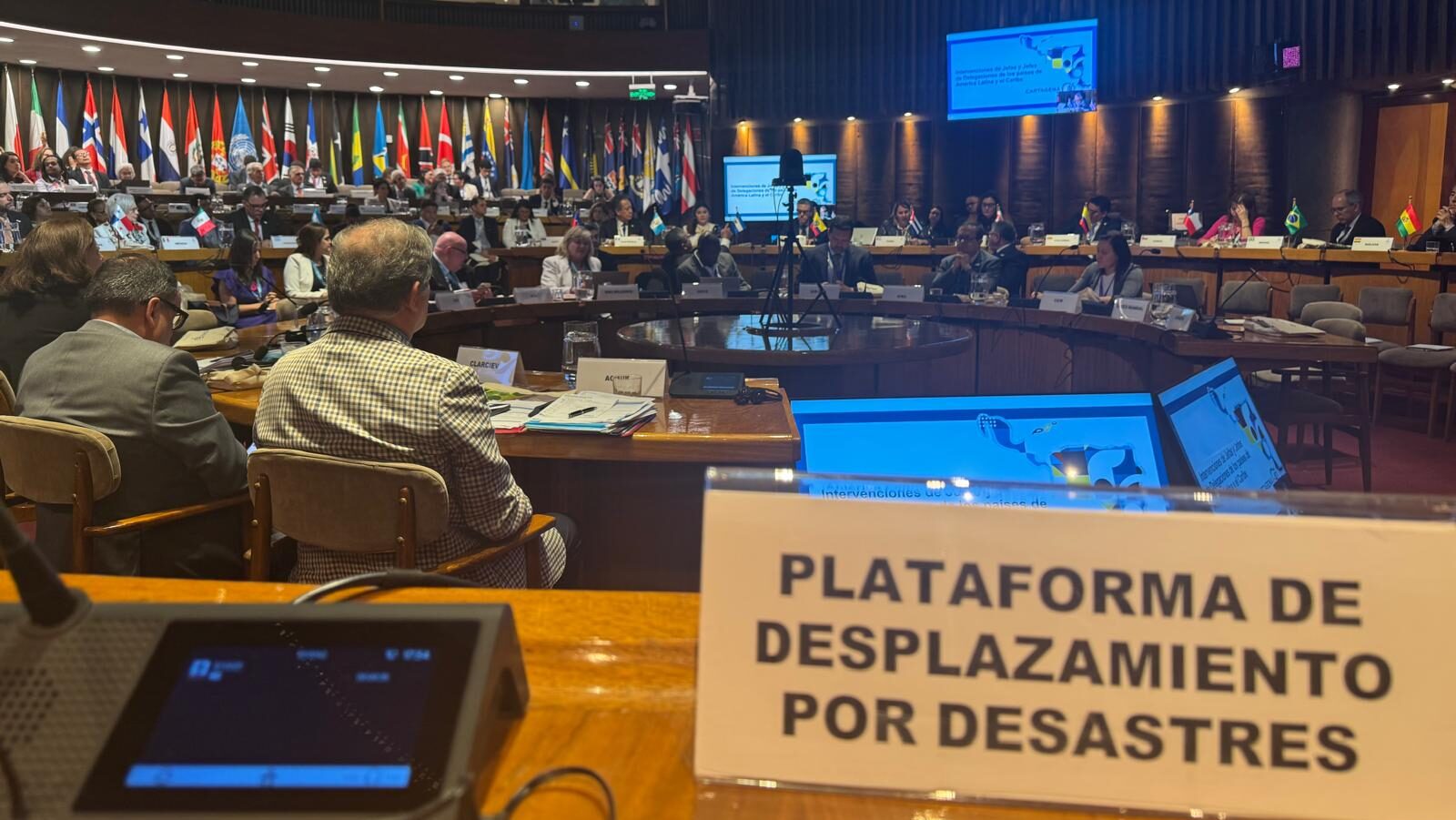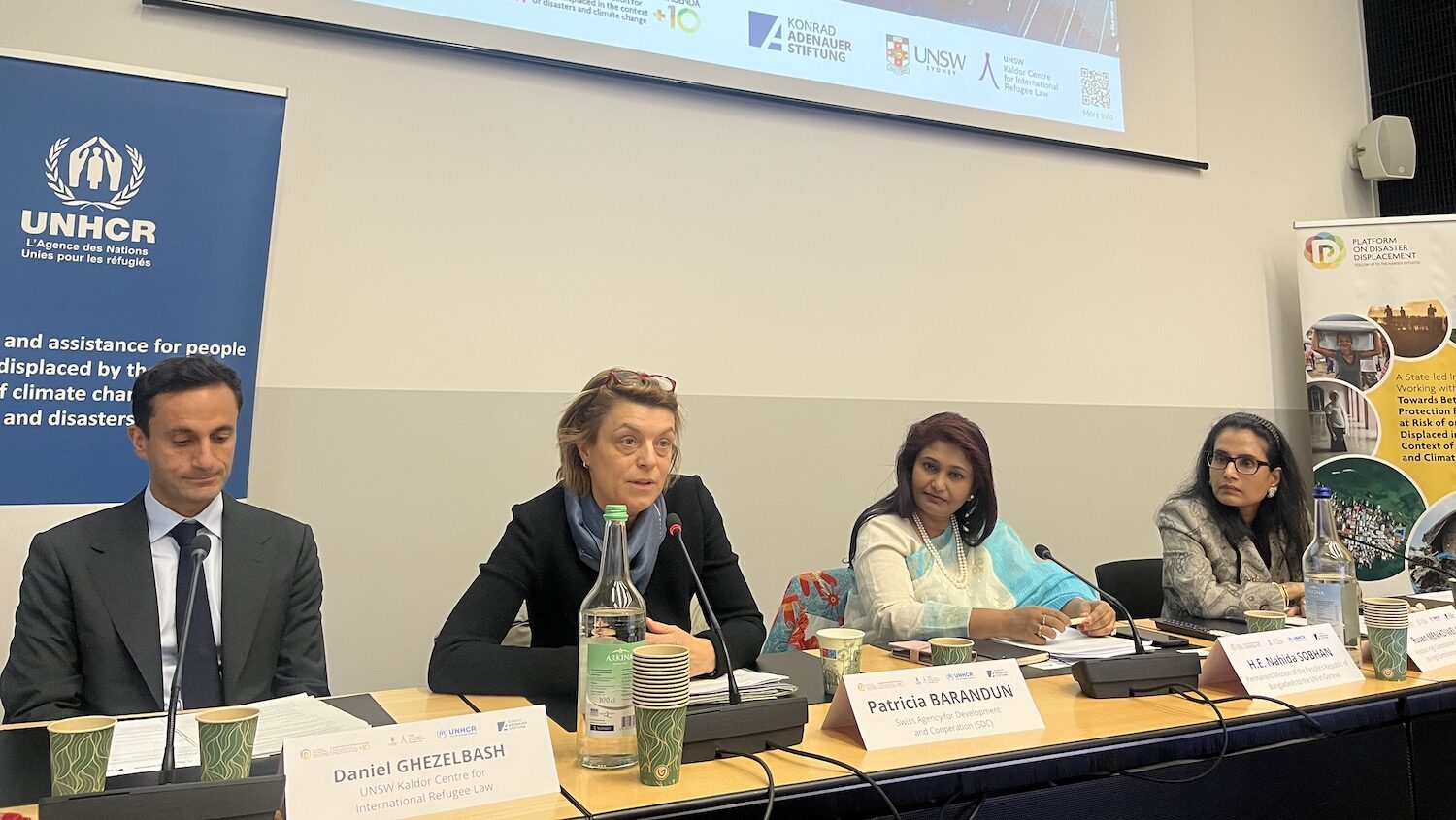Press Release – Cartagena+40: Chile Declares a New Era of Regional Cooperation to Address Forced Displacement in the Latin America and the Caribbean Region

12 December 2024, Santiago, Chile – 22 countries across Latin America and the Caribbean adopted the historic Chile Declaration (SP) and the Action Plan (SP) aimed at addressing forced displacement in the region, including those triggered by disasters and in the context of the adverse effects of climate change. This regional tool sets a new precedent for cooperation and solidarity, recognizing the urgent need for a coordinated, human rights-centered response to displacement in the face of an increasing number of disasters and the adverse effects of climate change.
One of the most notable and groundbreaking aspects of the Chile Action Plan is its Chapter 3: ‘Protection in the Contexts of Forced Displacement Due to Disasters’ which outlines specific programs to address the needs of displaced populations. These include:
- Program for Prevention, Preparedness, Response, and Humanitarian Action in disaster-affected countries.
- Program for Protection and Inclusion of Cross-Border Displaced Persons, focusing on the rights and welfare of people displaced across national borders.
- Regional Solidarity Program for Displacement in Disaster Contexts, reinforcing the importance of collective action and mutual support across the region.
The Action Plan contains a range of concrete measures to ensure that the rights and dignity of displaced populations are protected:
- Ensuring the inclusion of displaced persons in disaster contexts and those affected by the adverse impacts of climate change in the design and implementation of policies, programs, and responses, guaranteeing their full exercise of rights.
- Strengthening national systems of forecasting, registration, data collection, and statistical information disaggregated by population groups, including internally displaced persons (IDPs) and those at risk, allowing for targeted responses to vulnerable groups.
- Developing and strengthening inclusive multi-hazard early warning systems that anticipate and prepare for events, aiming to reduce human and material losses. These systems must take into account specific population differences, such as educational levels, cultural, and linguistic variations, to ensure effective communication, sensitization, and dissemination of information.
A Commitment to Coordinated Regional Action and Implementation
A key feature of the Chile Action Plan is the establishment of a Monitoring and Coordination Mechanism to ensure the effective implementation of the Action Plan over the next decade. This mechanism will facilitate the exchange of best practices, coordination of resources, and the tracking of progress across the region.

At the Ministerial event, countries such as Brazil, Costa Rica, Peru, and Honduras emphasized the growing risks posed by disasters and climate change, underscoring the need for a robust and unified regional response. As part of the discussions, leaders reflected on the significant challenges posed by the escalating frequency and severity of natural disasters in the region, which often lead to displacement, loss of livelihoods, and increased vulnerability, particularly among marginalized and at-risk populations.
The Role of the Platform on Disaster Displacement (PDD) in the Chile Action Plan
The PDD played a crucial role in supporting and accompanying the regional process leading to the adoption of the Chile Declaration and Action Plan. Through its technical assistance and strategic coordination, the PDD has been instrumental in ensuring that the human rights of displaced persons remain at the core of the regional framework. We remain committed to supporting the implementation of the Chile Action Plan and will continue to work with governments, civil society, and international organizations to ensure that the objectives outlined in the Plan are achieved.
Key Quotes
Luis Cordero, Undersecretary of the Interior, Chile:
In the coming years, certain extreme weather conditions will be at the origin of people’s displacement.”
Filippo Grandi, UN High Commissioner for Refugees:
It is encouraging that #Cartagena40 has advocated for integrating one of the greatest challenges of the century: the adverse effects of climate change and disasters, and their impact on displacement. This is a key milestone in the global effort to protect the most vulnerable.”
Atle Solberg, Head of the Secretariat of the Platform on Disaster Displacement (PDD):
It is especially significant that one of the most innovative aspects of the Cartagena+40 process is having recognized the urgency and relevance of protecting displaced people in the context of disasters and the adverse effects of climate change.”
A Call to Action for Regional Solidarity
This landmark agreement highlights the importance of regional solidarity in addressing the growing humanitarian challenges posed by disasters and climate change. The adoption of the Chile Declaration and Action Plan marks a significant step toward ensuring the protection and inclusion of displaced persons, and it reaffirms the region’s commitment to advancing a shared vision for a more resilient and equitable future.
The Chile Action Plan will serve as a blueprint for future cooperation and concrete action to address displacement in Latin America and the Caribbean, setting a strong example for other regions facing similar challenges.
For Further Information, Please Contact:
Chirine El Labbane, Communication Officer, Platform on Disaster Displacement Secretariat
chirinee@unops.org, Whatsapp: +41 78 879 0848
Cover photo: Ministry of Foreign Affairs of Chile








